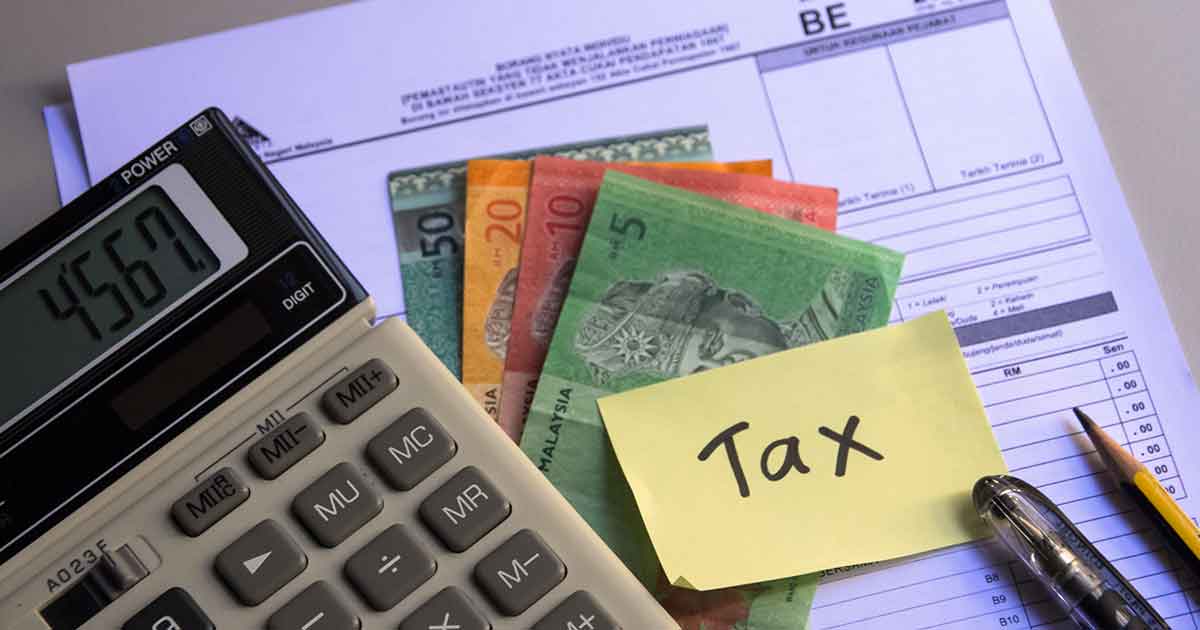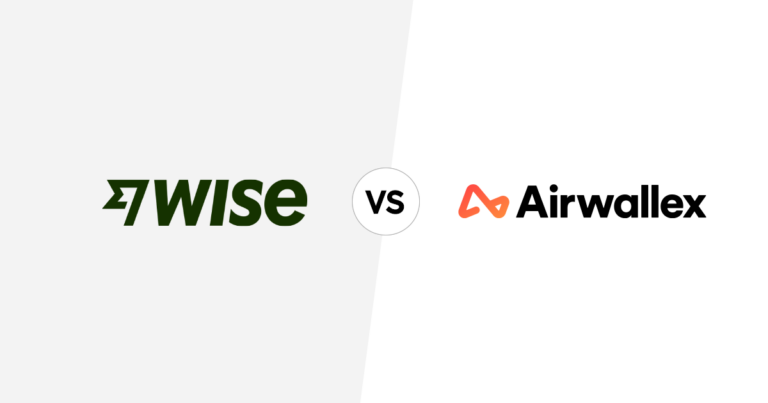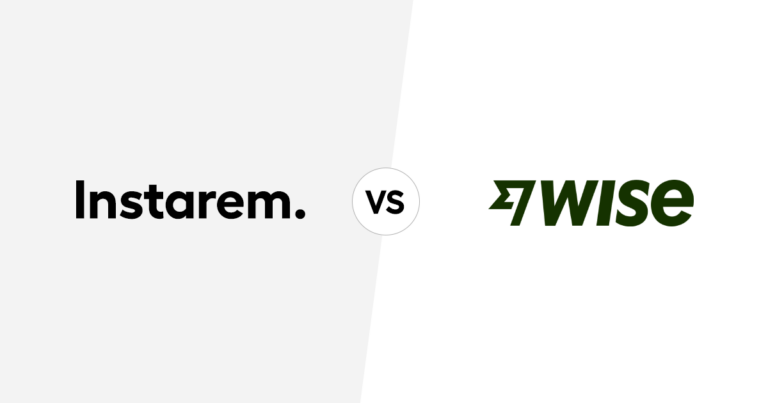Malaysian import duties and taxes: A complete breakdown

This article covers:
- Key takeaways
- Customs duties vs Import taxes in Malaysia
- How Malaysia calculates import duties (CIF and customs exchange rates)
- How to pay customs duty in Malaysia
- Key tips for logistics & business importers
- Why planning your customs costs is good business
- Summary: How to manage customs duties in Malaysia
- Import tax in Malaysia: FAQs
Whether you’re a small brand sending products into Malaysia or a shopper surprised by unexpected fees on your online order, understanding how customs duties work in Malaysia can save you time, money—and a major headache.
In this guide, we break down everything from Malaysia’s import taxes to the latest customs charges you might face.
Bonus tip for businesses: If you’re regularly importing goods, using a reliable cross-border payment solution like Instarem’s business money transfers can help you pay suppliers and partners efficiently—without the usual friction.
Key takeaways
- Customs duties and import taxes in Malaysia vary depending on your product type, value and shipping method—understanding the difference helps you budget better.
- Malaysia calculates import duties using the CIF method (Cost, Insurance, Freight) plus the official customs exchange rate.
- Not all shipments are taxed—you may qualify for exemptions under FTAs, manufacturing use, personal limits, or the RM 500 de minimis rule.
- To avoid clearance delays, always check the latest exchange rate, pre-calculate duties and keep documentation organised.
- For faster, cheaper payments across borders, use Instarem’s money transfer for business and global business account solutions.
Picture this: a small business owner orders bulk tech accessories from overseas. The designs are ready, the supplier offers a great deal and shipping is surprisingly fast. Everything seems to be going well—until the shipment hits Malaysian customs.
Suddenly, there’s a delay because the invoice value doesn’t match what’s expected. Then comes an unexpected customs duty bill, calculated using a different exchange rate than anticipated. Add on sales tax, handling fees and the scramble to find missing paperwork and what started as a smooth process quickly turns stressful and expensive.
It’s a common scenario for many importers. When you don’t know how Malaysia’s import duties work—or if you have no plans to manage them—costs can pile up fast. Being prepared makes all the difference whether someone imports once a month or every other day.
Things could have gone much smoother with a bit of foresight—checking the latest custom exchange rate, calculating duties in advance and keeping shipping paperwork organised. A reliable freight forwarder like Instarem might have flagged the invoice issue early.
Instarem’s business-friendly money transfer solution could have helped cut down FX fees and speed up payments to both customs and suppliers. It’s these small, proactive steps that keep importers one step ahead.
No more guesswork at the border. No more last-minute paperwork delays. Just a smarter way to manage costs, timelines, and international payments—so your shipments arrive on time and your margins stay protected.
Customs duties vs Import taxes in Malaysia
Yes, there’s a difference—and knowing it can make a big impact when importing goods into Malaysia.
Customs duty is the charge applied to the value of the goods you bring in. It’s determined by the product’s classification under the Harmonised System (HS) code and varies by product type. Think of it as a protective measure—used by the government to shield local industries from over-importation. So, if you’re importing items like processed foods, textiles, or motor vehicles, expect a customs duty that’s specific to that category.
Import tax, on the other hand, refers to additional charges layered on top of customs duty. The most common is the Sales and Service Tax (SST), which typically applies to consumer goods. Certain items—like alcohol, tobacco, and luxury goods—may also attract excise duties. These taxes form part of the government’s revenue and vary depending on your shipment’s nature.
Together, these charges make up what’s often referred to as Malaysia import duties or Malaysia customs tax—the total amount payable when your goods land in the country.
If you’re importing electronics, apparel, packaged goods, or raw materials for manufacturing, understanding which duties apply helps you budget better, price smarter, and avoid costly surprises at customs.
How Malaysia calculates import duties (CIF and customs exchange rates)
So, how does Malaysia decide how much you owe when importing goods? The process is surprisingly straightforward once you understand the formula. The country follows what’s known as the CIF method, which stands for Cost, Insurance and Freight. Let’s break that down:
- Cost: The actual value of the goods you’re importing—usually what you paid the supplier.
- Insurance: The cost of insuring the goods during transit.
- Freight: The shipping or transport cost to bring the goods into Malaysia.
Add these three together, and you’ll get the taxable value of your shipment. But there’s one more vital variable to factor in—the custom exchange rate Malaysia uses. This isn’t your standard market exchange rate.
It’s set and published regularly by the Royal Malaysian Customs Department and can fluctuate weekly, so checking the latest rate before declaring your shipment is smart.
Let’s look at an example:
Say your shipment is worth USD 1,000 and the custom exchange rate for the week is MYR 4.75 to 1 USD. That brings your taxable value to MYR 4,750. If your goods fall under a 10% customs duty Malaysia rate, you’d owe RM 475 just in duty.
Add the sales tax—usually between 5–10%—along with any handling or clearance fees from your shipping provider, and that gives you the total customs charge in Malaysia.
That’s why it’s crucial to calculate your total costs before your shipment even reaches Malaysian shores. Understanding the CIF method (Cost, Insurance, and Freight) lets you budget more accurately, prevent clearance delays, and stay fully compliant with customs regulations.
And when it comes time to pay those duties—especially in a foreign currency—Instarem’s global business account and business money transfer solutions make cross-border payments secure, efficient, and cost-effective with competitive exchange rates.
How to pay customs duty in Malaysia
Once your shipment touches down in Malaysia, there’s still a bit of paperwork and payment to get through before your goods are officially yours. But don’t worry—it’s manageable once you know the steps.
Here’s how to pay your Malaysia customs duty:
- Submit your import documentation – This usually includes forms like Borang Kastam No. 1 (Customs Form No. 1), invoices, packing lists and any relevant permits or certificates.
- Declare your items to the Royal Malaysian Customs Department – You must classify your goods accurately using the correct HS codes to avoid delays or overcharging.
- Pay all duties and taxes – This can be done online through the Customs Duty Payment System (CDPS) or via approved customs agents or freight forwarders.
- Wait for clearance and collect your goods – Once payment is confirmed and your documents are in order, customs will clear your shipment and you can arrange delivery or pick-up.
If the process feels overwhelming, you’re not alone. Many businesses turn to customs brokers or freight forwarders to handle the heavy lifting—from paperwork to payments.
And if you’re shipping with international couriers like DHL, FedEx, or UPS, they’ll typically manage the customs clearance on your behalf and send you the bill later.
For larger or recurring imports, using an international business account or Instarem’s business money transfer service puts you in control. You get better visibility on FX rates, more flexibility with transaction timing, and full transparency on fees.
That means you can settle duties promptly, avoid hidden costs, and keep your supply chain moving without last-minute surprises.
Key tips for logistics & business importers
If you’re part of the logistics industry or frequently importing goods into Malaysia, staying organised and prepared can make all the difference between smooth operations and costly delays. Here’s how to keep your import game strong:
1. Always check the customs exchange rate in Malaysia before placing orders.
Since the exchange rate used by customs differs from market rates and changes regularly, keeping an eye on it helps you accurately forecast your costs and avoid surprises at clearance.
2. Pre-calculate your Malaysia customs tax and import duties.
Knowing the potential charges beforehand means you can budget better and avoid last-minute holdups. This also helps prevent shipments from being stuck at customs due to unpaid fees.
3. Keep all your invoices, packing lists and shipping documents organised and easily accessible.
Customs officials often require these for verification; having them ready means a quicker clearance process.
4. Set aside a customs buffer in your budget.
Unexpected fees can crop up, so having some financial wiggle room ensures you’re prepared without impacting your cash flow.
5. Work with reliable freight forwarders and customs brokers.
Experienced partners can guide you through the paperwork, help you classify goods correctly, and ensure everything runs smoothly from shipment to delivery.
6. Use Instarem’s money transfer for business services to pay customs duties, freight charges and supplier invoices.
With competitive foreign exchange rates and fast transfers, you’ll reduce costly FX fees and avoid payment delays.
7. Manage all your international payments in one place.
Instarem’s global business account gives you a centralised platform to handle your payments—perfect for keeping your import operations efficient and stress-free.
Why planning your customs costs is good business
Unexpected customs charges can eat into your profit margins and delay deliveries. Here’s why staying ahead matters:
- You keep your customers happy with on-time orders.
- Your finances stay predictable and transparent
- You avoid fines for under-declaring or missing payments
Whether importing for resale, production, or personal use, sorting out your customs duty in Malaysia before your goods arrive gives you more control. It’s good business, plain and simple.
Summary: How to manage customs duties in Malaysia
Dealing with Malaysian import duties doesn’t have to be a headache. Once you understand how import tax is calculated and when it applies, it all comes down to staying organised and using the right tools to manage the process smoothly.
So, what now?
- Bookmark this blog (you’ll need it again)
- Talk to your broker or freight forwarder
- Open an Instarem business money transfer account to make paying your custom duties fast, affordable and stress-free
The more you ship, the more this stuff matters. With a solid grasp of custom charges in Malaysia and innovative money tools in place, you’ll be importing like a pro in no time.
Import tax in Malaysia: FAQs
How long does customs clearance take in Malaysia?
Customs clearance in Malaysia usually takes 1 to 3 working days for standard shipments—assuming all documents are in order and duties are paid.
However, delays can crop up due to discrepancies in declared values, missing paperwork, or if your shipment gets flagged for inspection.
Working with experienced customs brokers or reliable logistics partners can help streamline the process and minimise the risk of holdups—especially if you’re handling frequent or high-volume imports.
Can I track my customs duty payments and clearance status online in Malaysia
The Royal Malaysian Customs Department offers online portals where importers can track shipment clearance status and verify customs duty payments. These tools help you stay informed and avoid unexpected delays.
Many freight forwarders also provide integrated digital tracking with real-time customs updates—making the entire process more transparent and easier to manage.
Are there any penalties for under-declaring the value of imported goods in Malaysia?
Absolutely. Under-declaring the value of your goods or misclassifying them to lower customs duties or taxes is illegal—and carries serious consequences. You could face hefty fines, penalties, and even seizure of your shipment.
To stay compliant and avoid legal trouble, always make accurate declarations. Partnering with reputable customs brokers and ensuring proper documentation can go a long way in keeping your imports smooth and above board.
What charges can I expect when importing goods into Malaysia?
A typical import may include:
- Customs duty (percentage based on HS Code)
- Sales and Service Tax (SST)
- Excise duty (for alcohol, tobacco, vehicles, luxury goods)
- Handling or clearance fees from DHL, FedEx, UPS, etc.
- Storage or demurrage charges if documents or payments are delayed
- Permit fees (AP, MITI approvals, SIRIM certificates) for controlled products
Your total import cost = CIF value + customs duty + SST + excise duty + fees.
What goods require permits or approvals before entering Malaysia?
Controlled or restricted goods may require permits from specific agencies.
Examples include:
- Mobile phones, wireless devices (SIRIM permit)
- Food, beverages, herbs, supplements (MOH / MAQIS approvals)
- Cosmetics and personal care products (NPRA)
- Pharmaceutical items (NPRA)
- Used machinery (MITI)
- Plants, seeds, soil (MAQIS)
- Animal products (DOA/MAQIS)
Bringing in controlled goods without the proper permit can trigger seizure or long delays.
How does the customs exchange rate affect my import duty?
Malaysia uses its own customs exchange rate, which is updated by the Royal Malaysian Customs Department.
- It often differs from Google/market rates
- It can change weekly
- It determines your CIF value in MYR, which decides whether:
- you exceed the RM 500 de minimis threshold
- your duty and SST become higher
- you exceed the RM 500 de minimis threshold
Always check the rate before declaring your shipment.
















